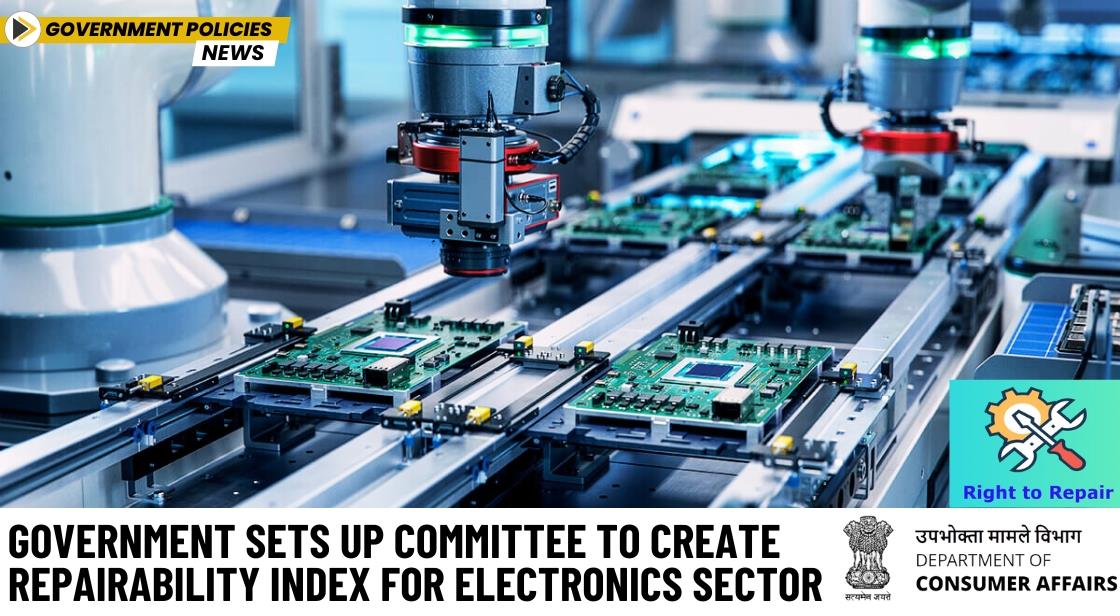Government Sets Up Committee to Create Repairability Index for Electronics Sector

News Synopsis
The Department of Consumer Affairs (DoCA) has taken a significant step towards promoting sustainability and consumer empowerment by forming an expert committee to develop a Repairability Index for the mobile and electronics sector.
This initiative is aimed at providing consumers with better information about the repairability of their electronic devices, thereby helping them make more informed purchasing decisions.
This announcement follows the National Workshop on the Right to Repair in the Mobile and Electronics Sector, held on August 29, 2024. During the workshop, key industry stakeholders and government officials discussed the growing need for a comprehensive repairability framework.
This framework will aim to extend the lifespan of products, improve consumer access to repair information, and facilitate the availability of spare parts, even for products that have been discontinued.
The introduction of the Repairability Index is expected to bring transparency to the market by offering consumers a clear understanding of how easy or difficult it is to repair specific products. By standardizing repairability assessments across brands and product lines, consumers will be able to compare products based on ease of repair, encouraging a shift towards more sustainable consumption patterns.
Key Components of the Repairability Framework
The proposed repairability ecosystem will focus on several critical elements that will benefit consumers:
Comprehensive Repair Information:
Consumers will gain access to detailed repair manuals, diagnostic tools, and lists of necessary tools and parts for repairing their devices. This includes information for products that are no longer in production.
Availability of Spare Parts:
One of the major hurdles in repairing electronic products is the unavailability of spare parts. The new system will ensure easier identification and timely access to spare parts, making the repair process much smoother.
Affordable and Accessible Tools:
The initiative aims to ensure that consumers can purchase or access cost-effective tools that are not only affordable but also safe to use.
Modular Product Design:
Products will be designed with modular components that can be independently accessed and repaired without having to replace the entire device. This approach will facilitate easier repairs and lower overall repair costs.
Economic Feasibility:
The committee will also work on ensuring that the costs associated with repairs, including spare parts and labor, are kept affordable for the average consumer. This will prevent unnecessary product replacements and reduce e-waste.
Policy Development and Integration into Consumer Protection Laws
The expert committee will focus on developing a comprehensive set of policies, guidelines, and regulations to support the successful implementation of the Repairability Index. These regulations will be integrated into existing consumer protection frameworks, ensuring a seamless transition. The initiative is expected to empower consumers by providing them with more control over their products, encouraging them to opt for repair over replacement and thus contributing to a circular economy.
The committee has been tasked with preparing its report and submitting the proposed framework for the Repairability Index by November 15, 2024. The framework will not only guide consumers but also encourage manufacturers to adopt sustainable product designs that are easier to repair, thereby reducing environmental impact.
This move by the Indian government aligns with the global trend of supporting the Right to Repair movement, which is gaining momentum in several countries. The creation of the Repairability Index is expected to help India move towards more sustainable electronics usage and reduce the generation of e-waste, which has become a major environmental concern worldwide.
Conclusion:
The establishment of the Repairability Index by the Department of Consumer Affairs marks a pivotal step towards promoting sustainability in the Indian electronics sector. By empowering consumers with detailed repair information, affordable tools, and ensuring the availability of spare parts, this initiative aims to extend product lifespans and reduce e-waste.
The framework not only supports the Right to Repair but also encourages manufacturers to adopt more modular and sustainable designs, benefiting both the environment and consumers. As the committee works towards submitting its report by November 2024, this move positions India as a global leader in fostering a circular economy and responsible consumption in the electronics industry.
You May Like









